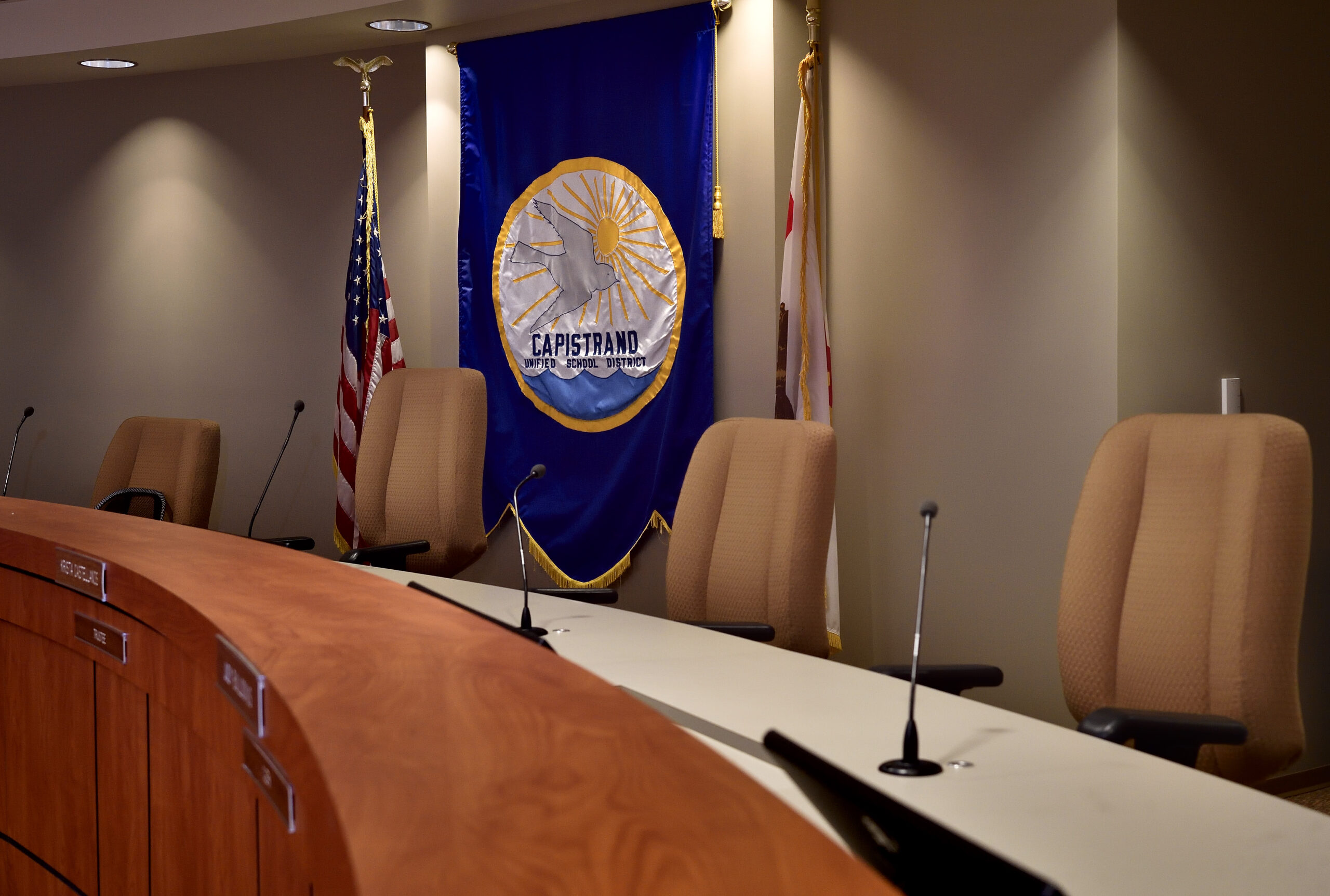Have you ever wanted to speak at a Capistrano Unified School District board meeting but didn’t know how to make a public comment? Confused about the types of meetings?
The district created CUSD Board Meetings 101, a comprehensive guide that answer these questions, and more!
We’re summarizing key points from the guide below:
The CUSD Board of Trustees
The Capistrano Unified School District, like other public school districts in California, is governed by a duly elected board of directors. Capo has seven members, each of whom represents a geographical area where the district’s schools are located. They serve four-year terms and receive a nominal monthly stipend for their time in the public service of students, staff and faculty.
What kinds of meetings are there?
Just like other publicly elected panels, Capo’s board meets regularly in an open setting that all members of the public are welcome to attend. There are four primary types of meetings:
- Regular
- Special
- Emergency
- Workshops
Regular meetings are just that: regularly scheduled, generally starting at 7 p.m. on the third Wednesday of the month.
Special meetings are called only when there is district business that must be completed before the next scheduled regular meeting.
Emergency meetings happen in emergency settings, such as natural disasters.
Workshops happen irregularly, generally a few times a year.
There is another type of meeting — the closed session — that is held. These are not open to the public because they involve discussion on topics that state law allows to be done in private. Those topics include litigation, matters concerning individual students, security issues, public health emergencies and collective bargaining agreements. Closed session agenda items can be confidential, but sometimes the public can learn about the nature of an item to be discussed and make comments before the session begins. In addition, sometimes district staff will report back on the actions taken during a closed session.
State law requires that a public notice of a meeting’s agenda be posted at least 72 hours in advance. The exceptions are special meetings, which are 24 hours in advance, or an emergency session, which be as little as one hour before. Meeting agendas are available on the district’s website.
How are meetings run?
Regular meetings generally happen in the following order: oral communications, the consent calendar and discussion/action items. Oral communications involve discussion of items not on the agenda. The consent calendar contains items considered to be of a routine nature that doesn’t require discussion or dissemination. However, some items can be “pulled” from the calendar for individual discussion upon the request of a board member.
Lastly, there are the discussion/action items, which take up the bulk of meeting time, debate and discussion. They may require a staff presentation and public comment before the board deliberates and makes a decision. Sometimes that decision is in line with what district staff is recommending the board do. Other times the board may amend that recommendation or reject it entirely. Motions are voted upon according to Robert’s Rules of Order.
How can I participate?
Attending members of the public can provide input at most meetings. During in-person meetings, they must fill out a blue speaker card before addressing the board. During remote meetings, speakers fill out an online comment request form.
There are several opportunities during a meeting for the public to comment. These times include at the outset of regular meetings during oral communications, when the district allows for general comment about items that are not on the meeting’s agenda. During agenda items, the public is allowed to speak on that item before a decision is made by the board.
The board generally does not respond to public comments. One exception here is workshops, which are less formal. Their classroom-like setting allows for more back and forth between the board and attending public.
District policy allows for 20 minutes of public comment for each agenda item. Public speakers are limited to three minutes per item. The board, at its discretion, is allowed to amend the number of minutes allowed.
Parting thoughts
Participation and open debate are essential to the proper governance of the Capistrano Unified School District. This process is a staple of American democracy, in that the public can watch its governing bodies at work, and when they deliberate and decide. The district invites all interested parties to join this longstanding tradition in a manner that is respectful and courteous.

